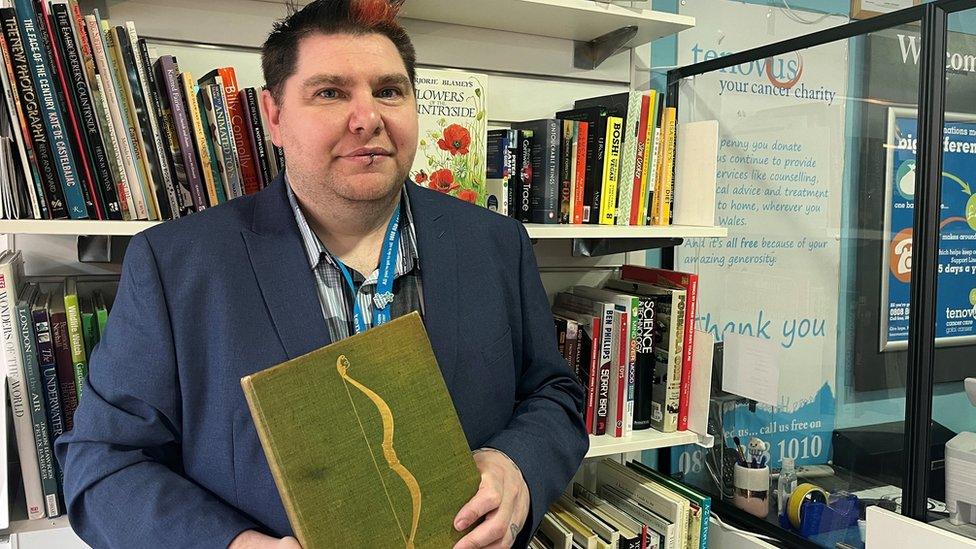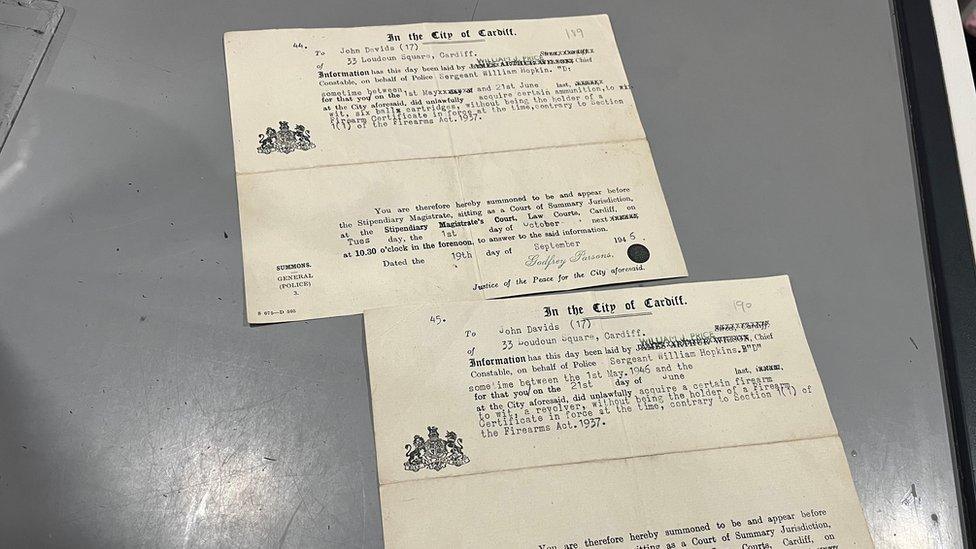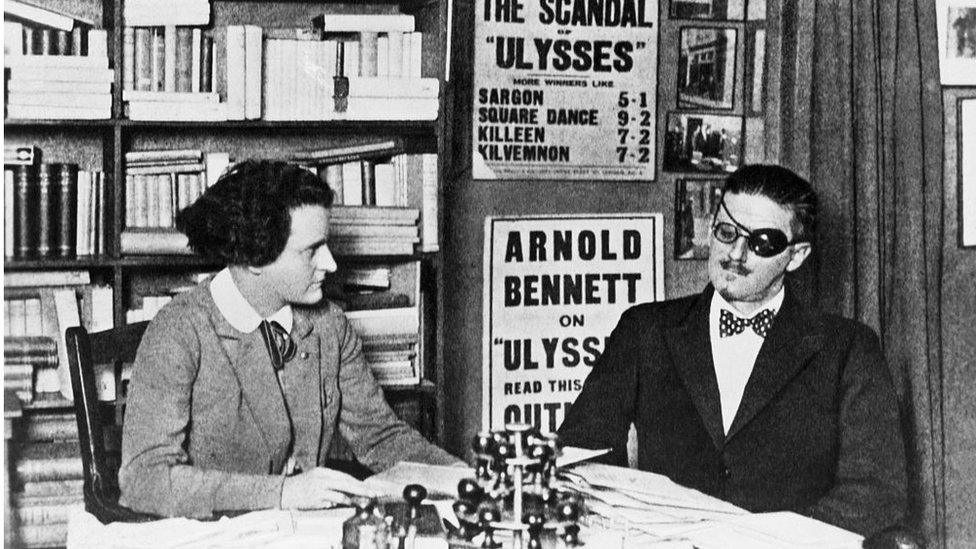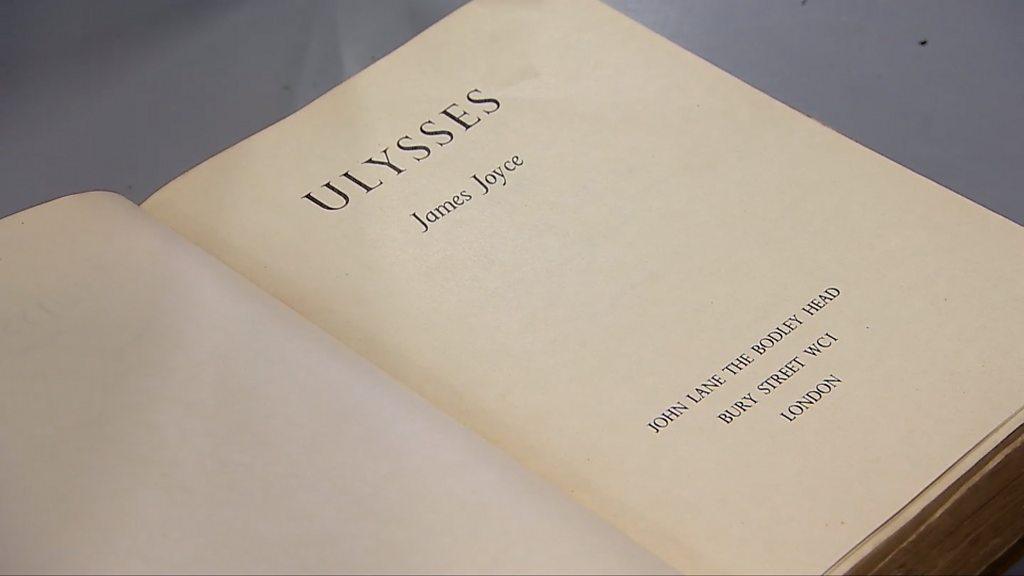Ulysses: £1 charity shop book set to fetch £800 at auction
- Published
Shop manager Carl Scott nearly sold the book for £1
A rare book which was going to be sold for £1 at a charity shop is expected to fetch £800 at auction.
The 1936 special edition of James Joyce's classic, Ulysses, was donated to Tenovus Cancer Care in Cardiff.
It contained two 1946 court summons which were being used as a bookmarks.
Volunteer bookkeeper Francoise Curtis, who spotted the novel, said: "As soon as I opened the page I could tell it was something special because it had its edition number."
She added: "I discovered this special edition in relatively good condition amongst a pile of Thomas Hardy books donated from a gentleman we'd not seen in the shop before and none of us knew."
This special edition is numbered 766 of only 900 volumes and is printed on japon vellum paper with a green buckram upper cover decorated in gilt with a large Homeric bow, in reference to Homer's Odyssey, the epic classical poem by which the novel is heavily influenced.

Shop manager Carl Scott gave the book its bargain price tag before its true value was discovered
Shop manager Carl Scott said he was very glad the book did not sell for £1 after he put it out "as someone would have had that bargain".
Nothing is known about the man who donated the literary classic and the mystery surrounding the two court summons for possession of firearms being used as bookmarks.

Not your typical bookmarks: These 1946 court summons were for the offence of possessing firearms
The 18-chapter Ulysses was first published in Paris by Shakespeare and Company in 1922.
The book will be going under the hammer as centennial celebrations of Ulysses are under way, external.
The auction will take place on March 16 at Roger Jones and Co Auction House in Leckwith, Cardiff with all proceeds going to Tenovus Cancer Care.


James Joyce met publisher Sylvia Beach in 1920 shortly after he moved to Paris
What is Ulysses?
It was written over seven years in three cities and depicts the events of a single day in Dublin.
It tells the stories of three central characters - Stephen Dedalus, Leopold Bloom and his wife, Molly - and is now celebrated as one of the world's most influential texts.
It was published on February 2 1922 by Paris bookseller Sylvia Beach, who considered it a masterpiece that would be "ranked among the classics in English literature" and said it would "make my place famous".
TS Eliot, writing in 1923, believed it was "the most important expression which the present age has found", external but Virginia Woolf described it as "tosh", external.
Parts had been serialised by US magazine Little Review in 1920, resulting in an obscenity trial that concluded with the editors being fined and ordered to cease further publication. It was also censored, external in Great Britain.
Random House published it in 1934, external after the US ban on publication was overturned the previous year.

HOW WELL DO YOU KNOW WALES?: Take our quiz to find out
ST DAVID'S DAY SPECIAL: Michael Sheen introduces new writers revealing their truths

Related topics
- Published3 March 2022
